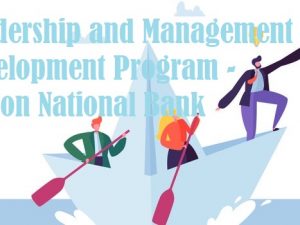Description
From South Korea to South Delhi
Case Study –
Yeong-jin Lee, an operations manager in a South Korean MNC, was offered a promotion in the form of an expatriate assignment as a senior operations manager in the company’s Indian office, which opened in 2000. He willingly accepted the three-year offer and moved to Delhi with his young family. His wife, Soo Kyong, quit her teaching job in Seoul and they moved to Delhi with their two children, a daughter aged 10 and a son aged 13. Yeong-jin was surprised by the various unanticipated challenges he faced in India, both on family and work fronts, and wondered what he and his home office in South Korea, as well as his host office in India, could have done better to prepare him and his family for the overseas assignment.
On the family front, both Yeong-jin Lee and Soo Kyong were concerned about their children’s academic and social adjustment in their new school. Although there was no problem with admission to a good school, since the local education system had a significant foreigner’s quota, the children were certain to experience cultural adjustment issues at school. In terms of the quality of education, Yeong-jin Lee and Soo Kyong had full confidence in the Indian education system, but were worried about whether their children would be able to adjust to the new school curriculum and make new friends. They were also concerned about how the children’s time away would affect their educational opportunities on repatriation to South Korea at the end of the three-year assignment.
Confucian philosophy makes a clear distinction between the roles of the husband and wife, where the former provides financial support to the family and the latter focuses on bringing up and educating children. Soo Kyong had no regrets on quitting her teaching job in South Korea and accompanying her family to India. She found comfort in the fact that she would be a stay-at-home mother in India and would be able to spend more time with the children during this period. However, she was slightly nervous about her own personal adjustment in terms of being away from work and feeling isolated in this new country without any family or friends. In addition, she was overwhelmed by the many changes in her new environment, especially the language and food challenges. She also knew that she could not depend on Yeong-jin to help her or the children with many of these changes because he would be occupied with many pressures at work. This was consistent with the Confucian emphasis on sacrifice and the collectivist South Korean value of loyalty to the organization over individual family needs (Kim & Tung, 2013).
On the work front, Yeong-jin was quite satisfied with the increased responsibilities associated with his elevated job title and managerial status in India. However, his home office still considered him a mid-level manager and expected him to implement centralized directives from headquarters; an expectation that he thought was unrealistic in the Indian context and that caused him significant stress. In addition, having only worked with South Korean nationals in his prior roles, Yeong-jin was ill prepared to work with colleagues from different cultural and linguistic backgrounds and with diverse religious affinities.
In India, Yeong-jin was concerned with preventing misunderstandings and unintentionally offending the HCNs, especially his lack of knowledge regarding the nuances of the various social, religious and cultural customs
in India. Further, he felt that he could not negotiate the division of labor on joint projects as effectively as he did with colleagues back at home and, as a result, he felt that some projects were bound to suffer from execution
and completion problems. An example of this fear was his frustration with Indian cultural and professional attitudes towards expectations of commitment to time and project deadlines although, on the surface, everything seemed agreeable for the moment.
You have to write an individual case study-based report using theoretical perspectives and current research on international HRD and/or international HRM elaborating comparative HR practices to inform your in-depth analysis of the issues raised by the case study and propose recommended actions for the organization
Questions
1. Critically discuss the challenges South Korean expatriates face in India, as in the case of Yeong-jin Lee?
2. Critically review how MNCs can try to ensure successful selection, training, adjustment and completion of expatriate assignments in the Indian context?





